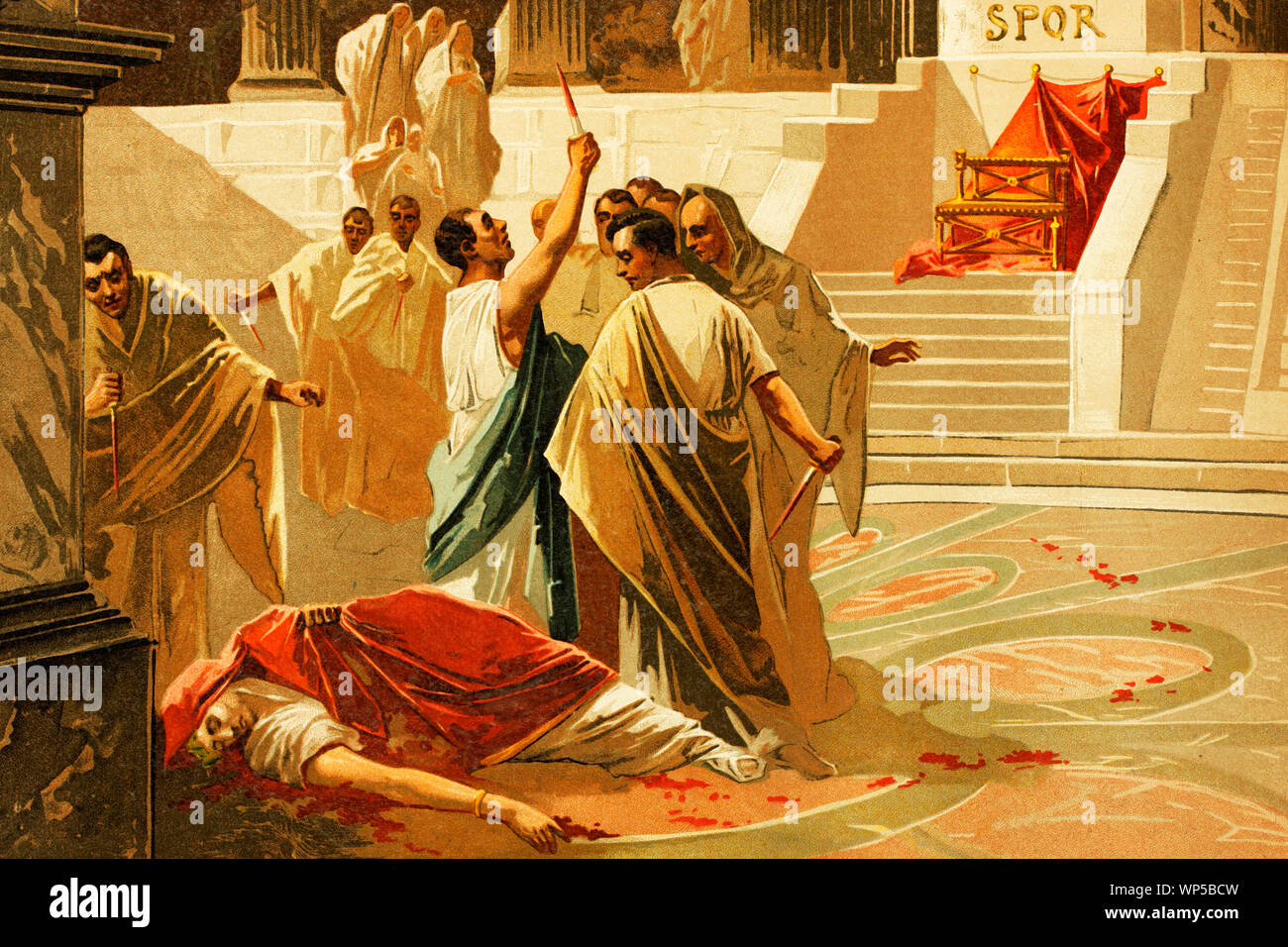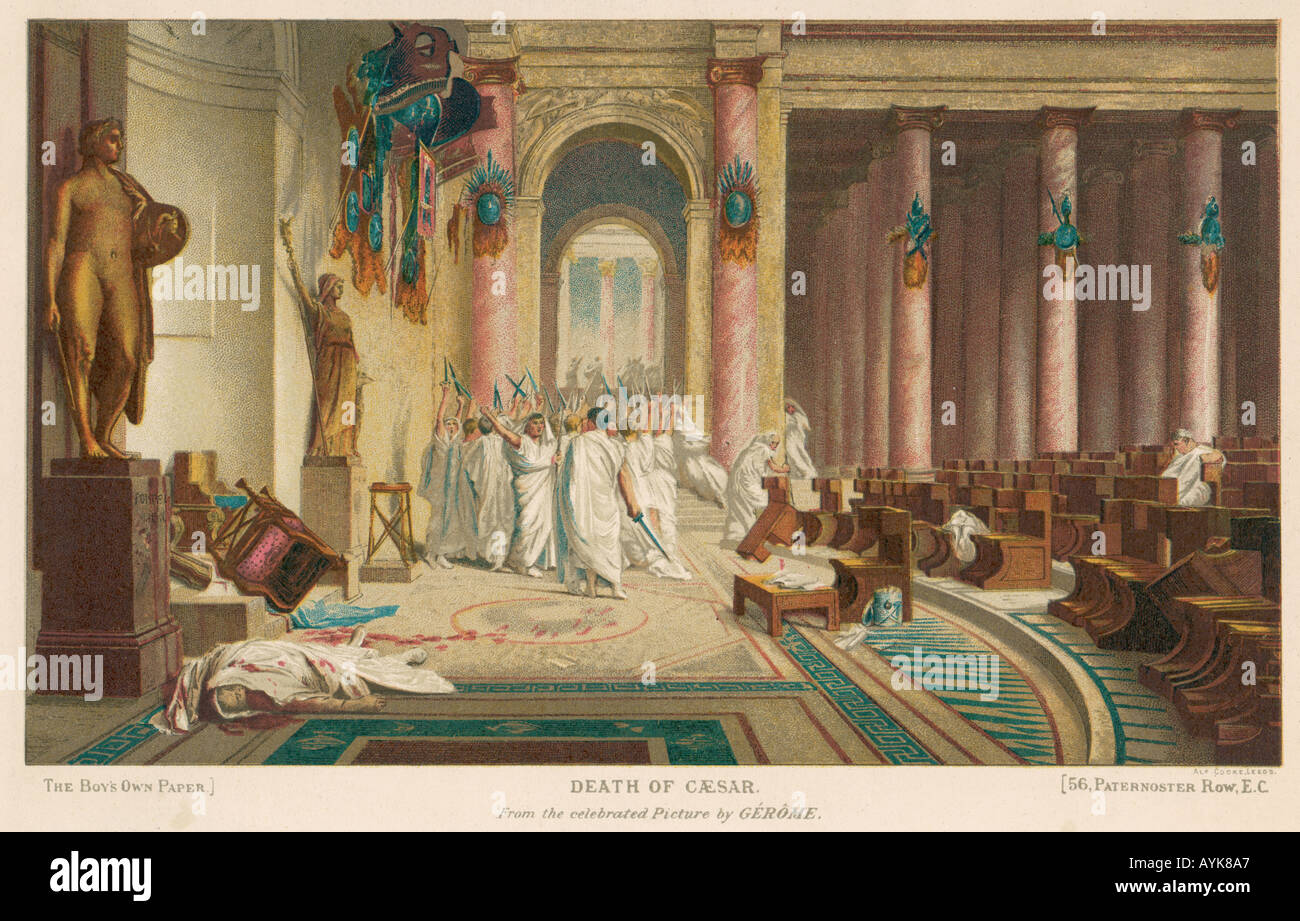
As the situation in Rome deterioriated, one seer advised Caesar to be particularly wary of the Ides of March, when he would be in great peril.ĭecimus Brutus, who was so close to Caesar that he was designated second heir in his will, joined a conspiracy with Marcus Brutus and Cassius to assassinate him on the Ides of March – 15 March 44 BCE – when they led a group of more than thirty. Both of them committed suicide in 30 BC after Octavian’s decisive victory at the naval Battle of Actium.īy 27 BC Octavian could rename himself Caesar Augustus. He would go on to be remembered as the first Emperor of Rome.Julius Caesar’s passion for royal powers generated open and deadly hatred. Mark Antony then made his move, marrying Cleopatra, Caesar’s lover and queen of Egypt, and planning to use Egypt’s wealth to fund his own ambitions. The Liberators were defeated in two battles in Greece, allowing the Triumvirate to rule for an uneasy 10 years. They set about murdering many of their opponents in Rome for good measure. On 27 November 43 BC, the Senate named Antony and Octavian as two heads of a Triumvirate, together with Caesar’s friend and ally Lepidus, tasked with taking on Brutus and Cassius, two of the Liberators. He and Octavian entered into a shaky alliance as the first fighting of a civil war began in northern Italy. The Senate voted an amnesty for the assassins, but Caesar’s chosen heir, Octavian, was quick to return to Rome from Greece to explore his options, recruiting Caesar’s soldiers to his cause as he went.Ĭaesar’s supporter, Mark Antony, also opposed the Liberators, but may have had ambitions of his own. Once Caesar was down, more conspirators rushed in, perhaps keen to make their mark on history, and he was reportedly stabbed 35 times.Ĭaesar’s famous last words, “Et tu, Brute?” are almost certainly an invention, given longevity by William Shakespeare’s dramatised version of events. Nicolaus recounts a messy scene with men injuring each other as they scramble to kill Caesar. He grabbed Caesar’s toga, preventing him from standing and apparently signalling the attack. In the Senate, one of the plotters, Tilius Cimber, approached Caesar under the pretext of pleading for his exiled brother. Again many friends warned him to go home, and again Brutus reassured him. He is said to have made some sort of religious sacrifice, revealing bad omens, despite several attempts to find something more encouraging. Brutus stepped in to reassure Caesar that he would be fine. His doctors were concerned by dizzy spells he was suffering and his wife, Calpurnia, had had worrying dreams.

Rumours of a plot were going around and some of Caesar’s friends tried to stop him going to the Senate. The conspirators considered a number of plans for killing Caesar, but settled on an attack in the Senate, where their togas would provide cover for their blades. This is what Nicolaus of Damascus records:

They called themselves the Liberators, and their ambition was to restore the power of the Senate. More than 60 high-ranking Romans, including Marcus Junius Brutus, who may have been Caesar’s illegitimate son, decided to do away with Caesar.

The people of Rome certainly saw him as a king, and he may have already have been regarded as a god. In 44 BC Caesar had been appointed dictator (a post previously awarded only temporarily and in times of great crisis) with no time limit on the term. Marcus Junius Brutus the Younger – a key conspirator.


 0 kommentar(er)
0 kommentar(er)
